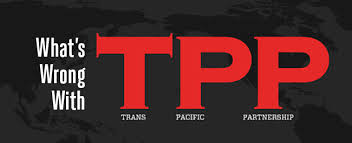The Washington Post has established itself over many decades as a major mouthpiece of elite opinion. Its editorial pages argue strongly for the interests of the wealthy, with scarcely concealed contempt for people who have to work for a living. (They do support alms for the poor, hence they are okay with programs like food stamps and TANF.)
This attitude has been shown many times over the years, but perhaps never more clearly than in its editorial on the bailout of General Motors and Chrysler, where it fumed about auto workers who earned $56,650 a year. By contrast, it was an ardent supporter of the Wall Street bailout, which was largely about helping people who make this much money in a day.
In fact, the Post helped to conceal one of the major scams that was used to pass the bailout, the claim that the commercial paper market was shutting down. When people were saying that the economy was at the edge of collapse following the Lehman bankruptcy, the commercial paper market was the most immediate issue.
Many large profitable companies (e.g. Verizon or Boeing) were dependent on issuing commercial paper to meet their monthly bills such as payroll, utility bills, and payments to suppliers. If these companies could not get the credit needed to make these payments, the economy really would collapse. What most of the country, and almost certainly most members of Congress, did not know at the time the bailout was approved was that Ben Bernanke and the Fed single-handedly had the ability to support the commercial paper market. The weekend after Congress approved the TARP, Ben Bernanke announced the creation of the Commercial Paper Funding Facility. Congress would have had a much more informed debate about whether it wanted to save Wall Street if it knew the Fed had this power before it voted, but folks like the Washington Post editorial board didn’t want any delays before the Wall Street folks got the money.
The Post, like the rest of the elite, has consistently had the same “make them eat it” attitude towards trade deals. When the Democratic presidential candidates criticized NAFTA back in 2007, the Post had a lead editorial singing the praises of NAFTA. After going through the benefits for the United States it told readers that NAFTA had been great for Mexico, causing its GDP to quadruple since 1987. According to the I.M.F., theactual increase was just 83 percent over this period, making Mexico the worst performer of any major country in Latin America.
In this vein of making things up to push trade deals, there was a letter signed by 13 former Democratic governors that touted the 1.8 million jobs created by the increase in exports since 2009. (They tell us they have seen these workers first-hand.) The governors ignored the jobs lost to the much larger growth in imports over the last five years. This is is the sort of nonsense the elites are using to push the fast-track authority that will be needed to pass the Trans-Pacific Partnership (TPP).

